Azhar
'Azhar' Movie Review
Rating : 2 stars out of 5 (Average)
Director : Tony D'Souza
Hindi (English subtitles available) , 2016
Originally published in "Indian Weekender" in May 2016
The following are statements from the real-life Mohammad Azharuddin : "When I heard about the movie, I was not convinced. But when director Tony D'Souza showed me the script , I gave him the go-ahead." This laugh-worthy decision by the film-makers was apparently to avoid the risk of litigation, so whether the real-life Azhar was a "safe" player or not, it certainly shows that director Tony D'Souza is a cautious batsman who will check with the bowler before deciding his strokeplay.
"Azhar" opens with a lengthy declaration that though it is based on the life of erstwhile Indian cricket captain Mohammad Azharuddin, it is not actually based on his life. Confused? Please don't be. Some film-makers complicate their films with ambiguous moral shades. "Azhar", directed by D'Souza and produced by Ekta Kapoor and Sony Pictures, can be absolved of any such crimes, because while it may initially fox you with some googlies, it eventually finishes with a shining moral clarity that is rare in the India of today.
Ladies, Gentleman ,and that much-tortured completely martyred animal who is the Indian Cricket Fan : I am not judging the real-life Mohammed Azharuddin (irrespective of litigation risk). For such verdicts you may peruse the CBI records, file an RTI for more light and do some more snooping of your own. But this film, for all its technical polish, smacks of the kind of double standards that degrade the true value of cinema.
The eponymous "hero", in real life, made a sparkling start in international cricket with three consecutive centuries, and later went on to shoulder the gargantuan task of captaining the Indian cricket team. But in the later stages of his career, match-fixing allegations laid him low, his form was no great shakes either and eventually both the International Cricket Council and the national cricket board banned him from playing, A dozen years later, he was acquitted of the charges by Andhra Pradesh High Court.
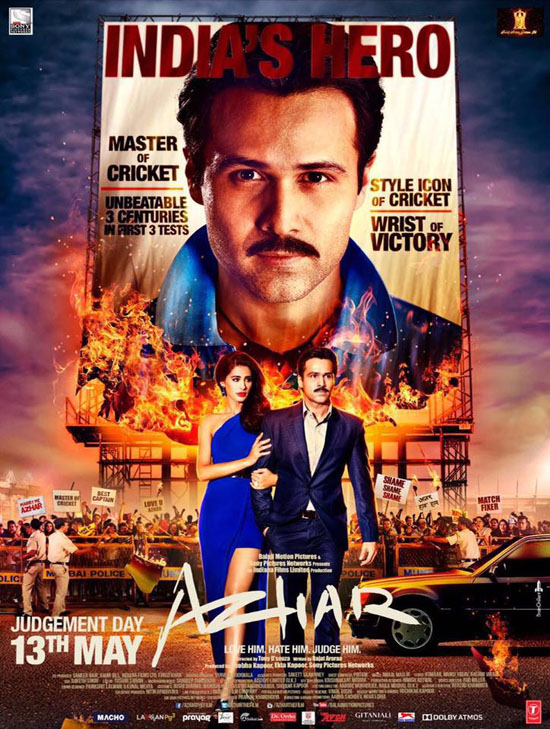
The on-screen Azhar dutifully follows similar trajectory. But as we have Emraan Hashmi here, he marries his 'serial kisser' status with curricular demands by managing to french-kiss both Prachi Desai and Nargis Fakhri (Lara Dutta is spared, but she might not have been, had the picture been longer). There are romantic songs in place of drink-breaks, sympathy-evoking contrasts of adoring crowds before, and isolation and boycotting later. All his team-mates desert him when he needs them the most, and he is treated like a bullied escort when somebody finally hires him for a celeb appearance. My heart would have bled had it not been already killed on the cricket pitch.
Scriptwriter Rajat Arora had debuted with his dialogues for 'Bluffmaster' - he should have given the same title to this movie. We are shown that at one point, Azhar has only Rs.5000 in his bank account , and a bookie later comes along and offers him Rs.1 crore. These sums are peanuts compared to the mind-boggling figures which surfaced during the real investigations.
Emraan Hashmi ,for all his assiduous but underwhelming exertions, is miscast. He would have better essayed Sachin Tendulkar, while someone like Randeep Hooda could have been a more appropriate choice to enact the lanky, slightly cavalier Azhar.
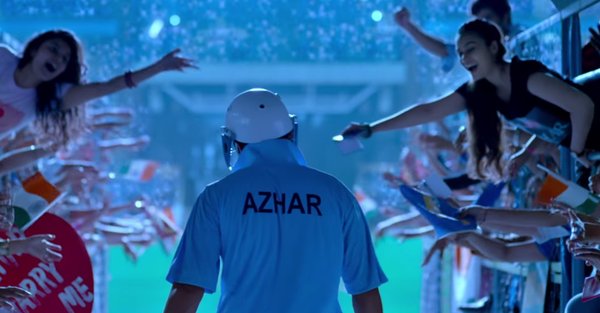
It is unlikely the real-life first wife of Azhar would have become a superstar by looks alone, while his second wife Sangeeta Bijlani, remains visually stunning as before. But the movie makes them both coiffed alabaster beauties - no wonder the poor stressed hero mistakes one for another. To further unify matters, both Prachi Desai (first wife) and Nargis Fakhri (the second one) emote in uni-dimensional states of smiles, tears and anger that are seen more in school-plays than in formidable dramas.
But to its credit, the narrative never drags, and D'Souza in his directorial debut would have come across a fine director were he not saddled with peddling such ludicrous material.
The ending is stunning , not in its narrative merit , but in asking us to believe what it reveals. Factual dishonesty flies in our face - a lawyer argues in an act of great epiphany that the CBI report was based on a sting operation, when in fact it relied strongly on rigorous interrogations. If one didn't want the movie to reflect real life, why bother calling it "Azhar"?
"Azhar" does not want to hit sixers like how Stone's 'JFK' and Mehta's 'Shahid' did. It contently busies itself with innocuous plotting , little ambition, and "it all ends well, don't worry" theme. Some happy endings are actually tragedies in disguise.
UPN
UPNWORLD welcomes your comments.

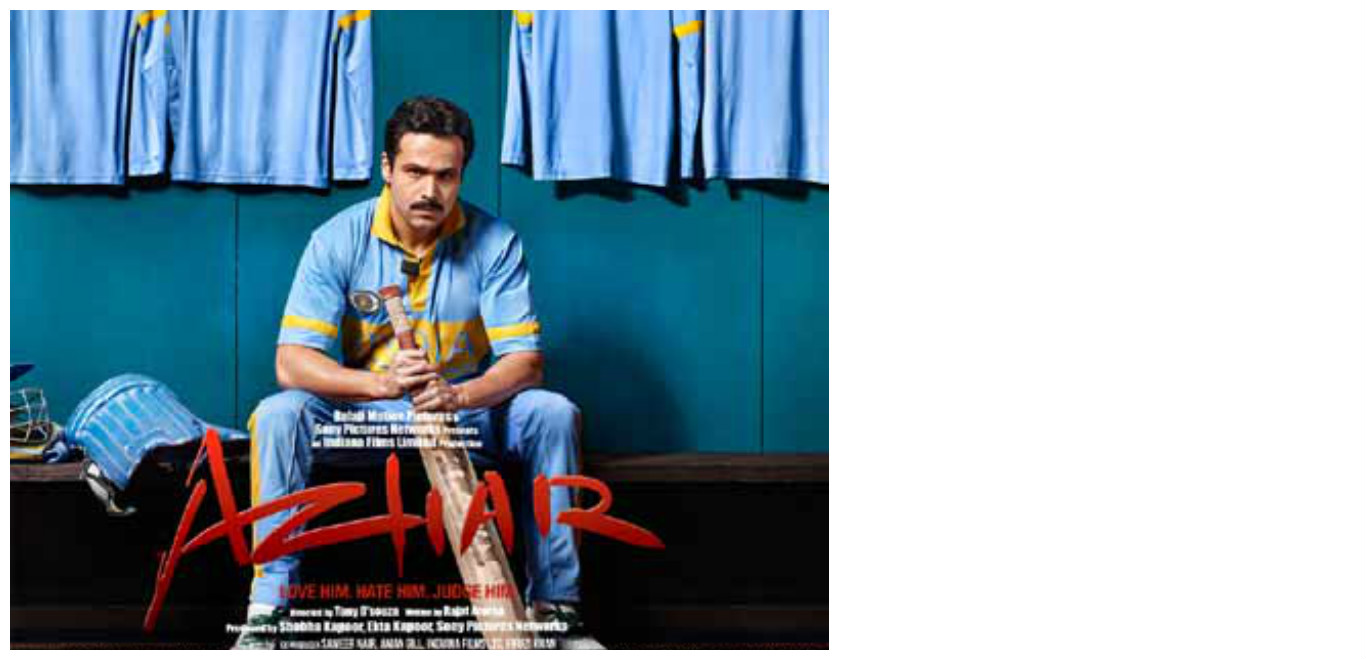
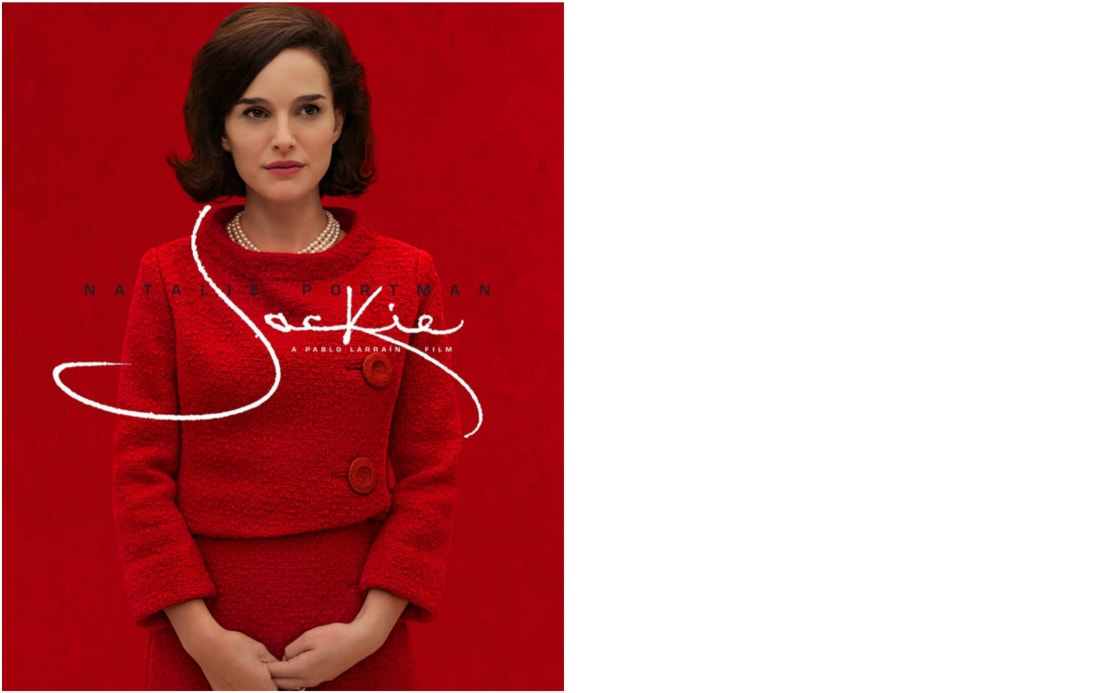

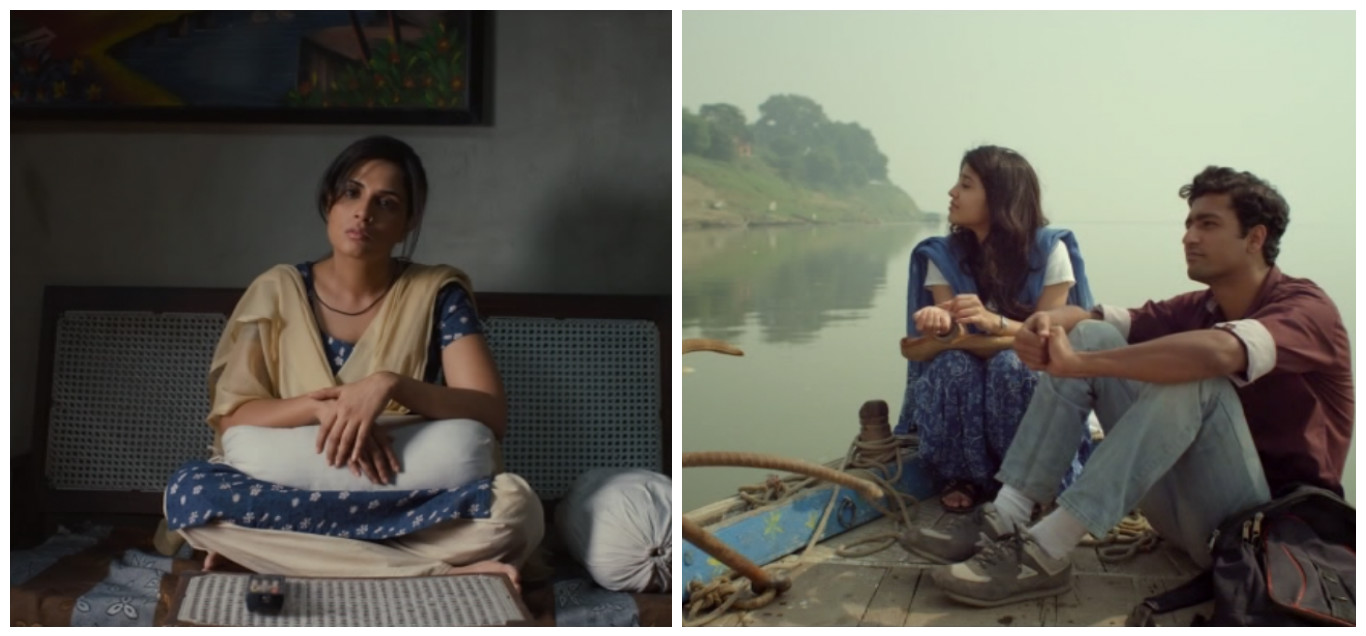
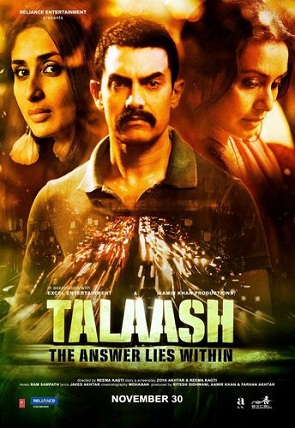




0 COMMENTS
WRITE COMMENT